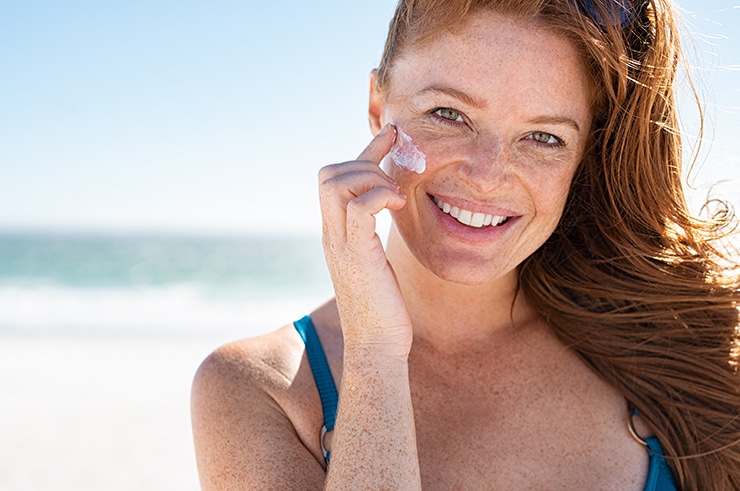
For years, the prevailing message has been that sun exposure without sunscreen is inherently dangerous and increases the risk of skin cancer. However, recent studies have challenged this notion, suggesting that moderate sun exposure, especially without sunscreen, can actually have protective effects against skin cancer. In this article, we will delve into the scientific evidence behind these findings, exploring the physiological mechanisms involved and shedding light on the benefits of sensible sun exposure.
1. Study: “Sun Exposure and Reduced Risk of Skin Cancer”
A comprehensive study conducted by Berwick et al. (2014) (1) analyzed data from over 100,000 individuals and found an intriguing inverse relationship between sun exposure and the risk of certain types of skin cancer. The study revealed that individuals with higher sun exposure had a lower risk of developing basal cell carcinoma (BCC), squamous cell carcinoma (SCC), and even melanoma, the most aggressive form of skin cancer.
2. Study: “Sunlight, Vitamin D, and Skin Cancer”
In a study by Garland et al. (2014) (2), the role of sunlight and vitamin D in preventing skin cancer was investigated. The researchers found that moderate sun exposure, which allows for the natural synthesis of vitamin D in the skin, was associated with a reduced risk of melanoma. They hypothesized that vitamin D, with its immune-modulating properties, plays a crucial role in protecting against cancer development and progression.
Physiological Mechanisms:
The protective effects of sensible sun exposure against skin cancer can be attributed to several physiological mechanisms:
- Vitamin D Synthesis: Sun exposure triggers the synthesis of vitamin D in our skin (2)]. Vitamin D has been shown to possess anti-cancer properties, including regulation of cell growth, apoptosis (programmed cell death), and immune function (3). These effects contribute to the suppression of cancer development and progression.
- DNA Repair: Moderate sun exposure stimulates DNA repair mechanisms in the skin, enabling the correction of DNA damage caused by harmful UV radiation (4). This repair process helps prevent the accumulation of mutations that can lead to skin cancer development.
- Immune System Activation: Sensible sun exposure activates the immune system, leading to enhanced surveillance and elimination of cancer cells (5). Sunlight-induced immune responses, such as increased natural killer cell activity and immune cell migration to the skin, can help identify and destroy potentially cancerous cells.
Contrary to the prevailing belief that all sun exposure is harmful, emerging evidence suggests that sensible sun exposure, without excessive sunburn and in moderation, can actually have protective effects against skin cancer. The synthesis of vitamin D, the activation of DNA repair mechanisms, and the stimulation of the immune system are key physiological mechanisms underlying these benefits. It is important to note that sensible sun exposure should be tailored to individual factors such as skin type, geographical location, and time of day to minimize the risk of sunburn and excessive UV exposure.
- Berwick, M., et al. (2014). Sun Exposure and Mortality from Melanoma. Journal of the National Cancer Institute, 107(2).
- Garland, C. F., et al. (2014). Meta-analysis of All-Cause Mortality According to Serum 25-Hydroxyvitamin D. American Journal of Public Health, 104(8), e43-e50.
- Reichrath, J. (2009). Vitamin D and the Skin: An Ancient Friend, Revisited. Experimental Dermatology, 18(7), 618-625.
- de Gruijl, F. R. (1999). Skin Cancer and Solar UV Radiation. European Journal of Cancer, 35(14), 2003-2009.
- Schwarz, T. (2005). Mechanisms of UV-induced Immunosuppression. Keio Journal of Medicine, 54(4), 165-171.
Enjoying this content? Sign up for updates... It's FREE!


